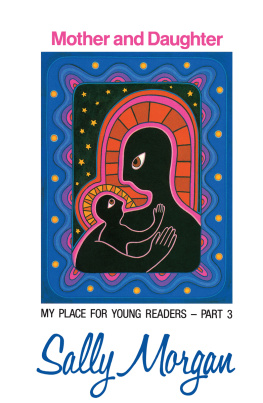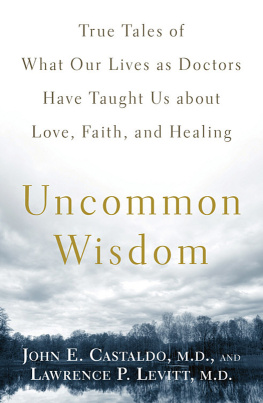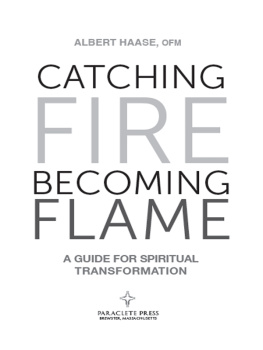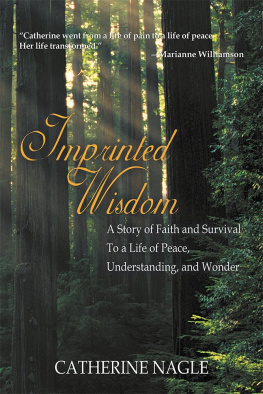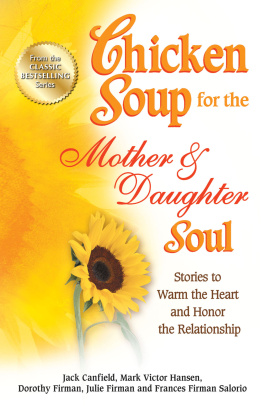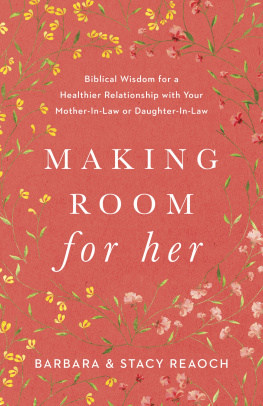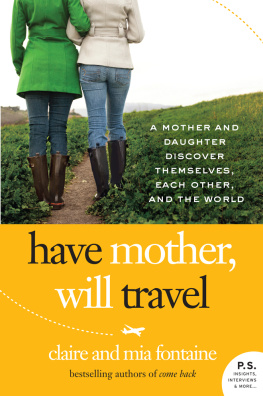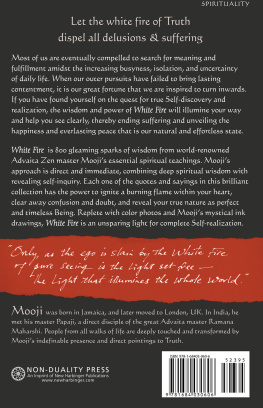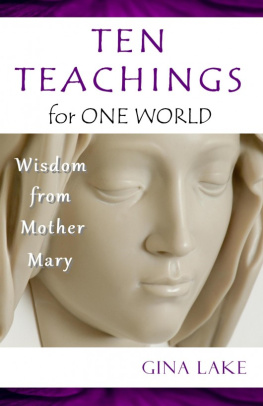I warmly thank my longtime agent, Tracy Grant, for believing in this different approach to wisdom literature, despite its lack of precedent and quiet audacity of voice; for her perseverance, good judgment, and generous spirit of ongoing cooperation in the venture. Becoming Flame would not be experiencing this unveiling without her.
Special thanks must also be expressed to Virginia Wagnon, for sharing in its journey; to Phyllis Tickle for caring and encouraging me as it developed; to Diane M. Moore and Victoria Sullivan for priceless support at crucial moments; to KiKi Crombie for enduring friendship; to Sr. Elizabeth Mills for the heart-listening that is praying; and as always, to my husband Bill Keller, who never stopped believing.
Introduction
What is to give light must endure burning.
Viktor Frankl
I t is not for nothing that Wisdom is personified as a woman in the Old Testament, as in Proverbs : ... whoever finds me finds life (v. a; cf Sir. :; Wis. of Sol. :).
Sophia compels, she personifies, she attracts as the aspect of God who draws the wise into the sphere of Divine Wisdom. It is an exquisite and arresting image with wide-ranging literary importance. Yet, despite the strength of this tradition in recognizing the feminine nature of wisdom in the world, it is also undeniably evident that women in society have not been generally deemed as wise, or to be sought out as purveyors of the essence of truth. Exceptions found in history and literature of the wise crone, the otherworldly seer, and the wise grandmother in traditional tales only serve to underline the rule.
There are reasons for this disconnect. The essentially feminine nature of the pursuit of wise living is a concept not easily grasped, and it is largely lost on a world that expects knowledge at its fingertips, statistics to guide its choices, and instant verification of the quantifiable personal profit achieved by its actions.
We often hear of womens intuition, or feminine accuracy credited with the summing up of character or emotional intent in a given situation. Sir Arthur Conan Doyle includes this insight in one of his Sherlock Holmes novels: I have seen too much not to know that the impression of a woman may be more valuable than the conclusion of an analytical reasoner. (As though a woman could not be both.)
It is my premise that the overarching value of womans way in the world, and the slower process through which she gains experience, sifts and filters it through her natural stages of development, and eventually finds a confident voice is vastly underratedand often completely ignored within larger circles of power and influence.
Susan Cahill writes in the Introduction to her anthology Wise Women: Perhaps because it has been womens task throughout history to go on believing in life when there was almost no hope, in the words of Margaret Mead, women have sought and cultivated the goods of the spirit out of a practical need for meaning ( 1996 , p. xv). Cahill also quotes Elizabeth A. Johnson from her book She Who Is, celebrating God as relational aliveness, a masculine/feminine force of mutuality that implies open-heartedness and change as signs of the presence of a holy spirit (p. xvi). Clearly womens equal participation in this dynamic is essential to the visitation of such a spirit.
All of this, I maintain, makes womens essential wisdom all that much more the treasure that is better than gold and choice silver, to visit again the Bibles Proverbs (:)because womens wisdom is not easily or perfunctorily described or even necessarily recognized in the midst of the worlds many competing systems and authorities. Like the unseen wind, or breath, spirit blows where it will and engenders change sometimes without visible means. Womens relative invisibility in higher circles of power suggests a quality of mystery and depth of influence not easily grasped.
It is a rare
And a high way,
Which the soul follows,
Drawing the senses after.
Mechthild of Magdeburg
Womans wisdom is, of course, as particular as an individual woman herself, as only in the context of real-life dilemmas and choices can true wisdom become actualized. The proof of wisdom is in the health, in the largest sense, of the one who is nurtured by it, as any mother knows in her soul.
While general rules can be helpful in evaluating lifes values: Wise conduct is pleasure to a person of understanding (Prov. :b), womens wisdom acknowledges the ambiguity and fluidity of lifes besetting issues and fluctuating situations. And effectively implementing womens wisdom always requires something more an actualized understandingto come to the fore and literally bring life out of chaos. The mothers service is nearest, readiest and surest, concluded fourteenth-century English mystic Julian of Norwich in her Showings. From this insight we can also infer an aspect of Gods care for all creation.


